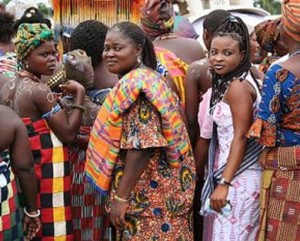Women constitute 30.50% of firms’ directors in Accra – UCC study reveals
 Only 30.50 per cent of firms’ directors working in the Greater Accra Region (GAR) are women, a study conducted by researchers from the School of Economics, University of Cape Coast, has revealed.
Only 30.50 per cent of firms’ directors working in the Greater Accra Region (GAR) are women, a study conducted by researchers from the School of Economics, University of Cape Coast, has revealed.
The study showed that firms in food and accommodation-related sectors were much more gender diverse than other sectors; and that gender diversity at firm leadership had a positive association with Corporate Social Responsibility (CSR) outcomes.
However, appointing more than six women as directors out of 10 directors within a firm could reverse CSR gains.
The yearlong study, dubbed: “Do Women in Leadership Affect Firms’ Environmental, Social and Governance Performance? A Study of Firms in the Greater Accra Region of Ghana,” was carried out by researchers from the School of Economics, University of Cape Coast in collaboration with the Ghana Statistical Service and the University of Western Ontario, from April 1, 2022, to April 2023.
Dr Raymond Elikplim Kofinti, one of the lead researchers, presented the findings of the study at a public workshop in Accra.
Members of the research team included Prof Emmanuel Ekow Asmah, Dr Camara Kwasi Obeng, Dr Emmanuel Joel Aikins Abakah, Dr Joshua Sebu, Dr Gloria Essilfie, Dr William Godfred Cantah and Dr Ralph Nordjo.
The rest were Prof Samuel Kobina Annim and Mr Anthony Krakah, both with the Ghana Statistical Service and Prof Godwin Arku of the University of Western Ontario, Canada.
The project is a research initiative by Private Enterprise Development in Low-Income Countries (PEDL), a programme funded jointly by the Centre for Economic Policy Research (CEPR) and the Foreign, Commonwealth and Development Office (FCDO).
The sampling and data collection were undertaken by the Ghana Statistical Service focusing on 312 medium and large firms and, values data on 792 respective directors of these firms comprising 292 female and 500 male directors.
The research investigated whether women in leadership affect firms’ environmental, social and governance performance in the Greater Accra Region of Ghana using linear regression and quasi-experimental approaches.
Dr Kofinti said the study findings made a clarion call for gender diversity in the decision-making body of firms but caution against female dominance.
He said the study showed that of the four components of CSR, of which gender-diverse firms had the biggest effect in increasing ethical responsibility, followed by discretionary, economic, and legal responsibilities.
He said the finding converged with existing studies that demonstrated that women in firm leadership would care more about ethical and broader societal issues compared to their male counterparts.
The study revealed that firms jointly owned by Ghanaians and foreigners had better CSR outcomes than exclusively owned firms by foreigners or Ghanaians while maturing firms (5-14 years) were found to be more adherent to CSR outcomes compared to young (0-4 years) and established (greater than 15 years) firms.
He said the key statistics on gender diversity revealed that three out of every 10 directors (30.5 per cent) were women, and more than two out of five firms (47.6 per cent) had at least a third of their directors being women.
He noted that gender gaps in values were observed at the director level, with female directors ranking low in power value compared to male directors.
Dr Kofinti said this suggested that firms with more representation of female directors were more likely to advocate CSR decisions because female directors emphasised self-transcendence values and motives compared to their male counterparts.
Source: GNA
